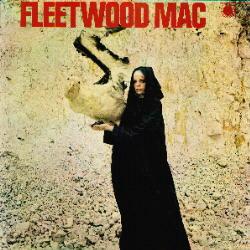This article needs additional citations for verification .(May 2021) |
| The Pious Bird of Good Omen | ||||
|---|---|---|---|---|
 | ||||
| Compilation album by | ||||
| Released | 1 August 1969 [1] | |||
| Recorded | September 1967, January–April & October 1968 | |||
| Genre | Blues rock | |||
| Length | 36:00 | |||
| Label | Blue Horizon | |||
| Producer | Mike Vernon | |||
| Fleetwood Mac chronology | ||||
| ||||
| Review scores | |
|---|---|
| Source | Rating |
| AllMusic | |
| Blender | |
| The New Rolling Stone Album Guide | |
The Pious Bird of Good Omen is a compilation album by the British blues rock band Fleetwood Mac, released in 1969. It consists of their first four non-album UK singles and their B-sides, one track from their first album Fleetwood Mac , two tracks from their second album Mr. Wonderful , and two tracks by the blues artist Eddie Boyd with backing by members of Fleetwood Mac. These came from Boyd's album 7936 South Rhodes. [5]
Contents
The album was released under the Blue Horizon, which had published all of their material up until the "Man of the World" single, which was instead issued by Immediate Records. By the time Pious Bird of Good Omen was released, the band had left Immediate Records and were searching for a new record label. [1]
The Pious Bird of Good Omen was not released in the US. The closest US equivalent is the English Rose compilation album, released in December 1968 and sharing four songs with Pious Bird.
In 2002, the album was repackaged by Sony BMG as Greatest Hits with cover art very closely resembling the 1971 Greatest Hits album, and with "Shake Your Moneymaker" and "Love That Burns" added to the track listing. In 2004, when Fleetwood Mac's Blue Horizon era albums were remastered, Pious Bird was reconfigured to remove tracks from the previous two Mac albums and the Boyd tracks, which were replaced by archival recordings from the 1967 and 1968 period.